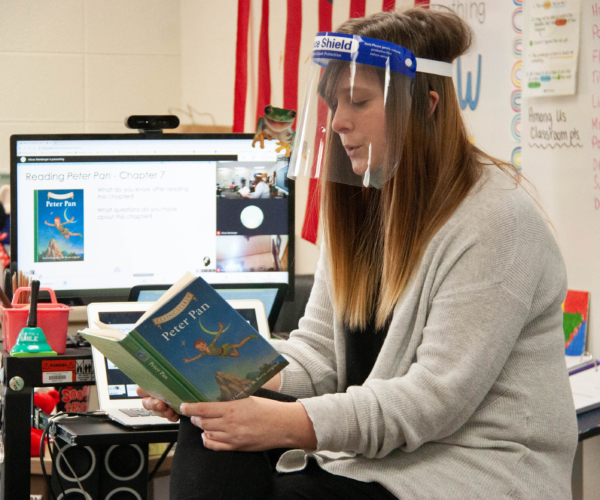COVID’s impact has so far been more emotional than academic for students in southern Wisconsin’s rural Parkview School District, Superintendent Steve Lutzke says.
A recent round of spring assessments revealed students are performing at or above the same level they were last year before the epidemic struck.
“Our students are staying on track but they’re missing out on so many things,” Lutzke says. “It wears on our students, it wears on their parents and it wears on our staff that we’re not able to be as close and connected as we usually are.”
A district cross country team was able to compete while administrators had to pause the volleyball and football seasons. Overall, participation in athletics was lower than normal due to COVID concerns, Lutzke says
More from DA: 5 ways to overcome compassion fatigue in K-12 education
Prior to COVID, Lutzke and his team had prioritized improving the performance of students from low socio-economic backgrounds and students in special education.
The challenge has been complicated by the difficulties of providing personalized attention via online learning. Parkview teachers are using Zoom breakout rooms to work with individual students, Lutzke says.
“If students are willing to come in for one-on-one instruction, we schedule time with the teacher or instructional assistant,” he says. “The student can get help , anf go back home and continue with virtual instruction. ”
The district also has been joined by community partners to help families meet living expenses. The district maintains a “care closet,” where families can get clothes and toiletries while a local auto repair shop is donated $3 from every oil change to help students’ cover everyday expenses.
“In some ways, the pandemic has strengthened us—the staff feels empowered and confident that there aren’t too many hurdles that can be thrown at us that we can’t handle,” Lutzke says. “I do worry that some of our kids should be here in person, kids who aren’t keeping up or participating at any acceptable level.”
More from DA: How a first-year superintendent confronts COVID in rural district









